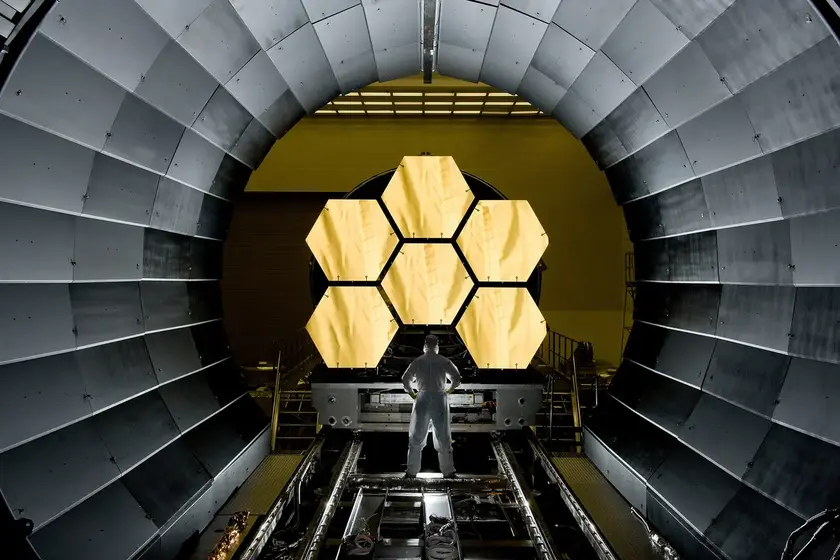T4K3.news
James Webb Telescope may have found early cosmic light sources
New data from the James Webb Telescope suggests potential early light sources predating stars.
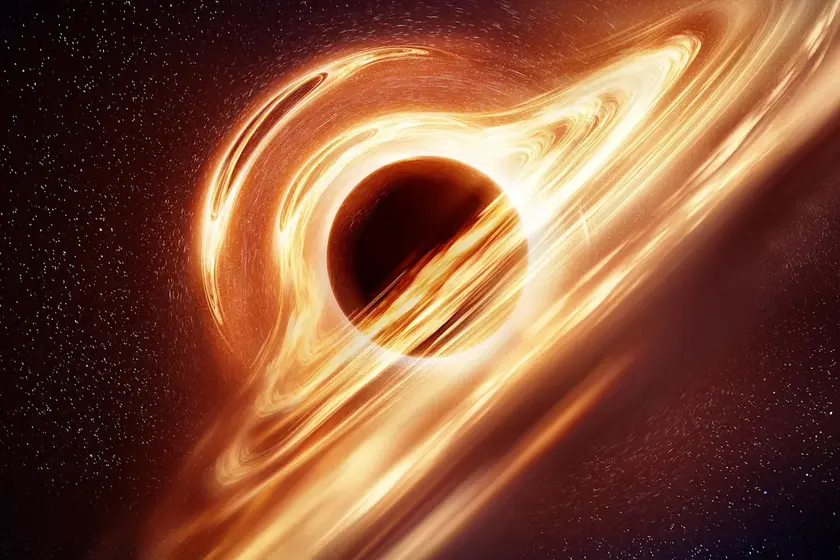
New observations from the James Webb Space Telescope suggest early cosmic light sources may not be stars.
James Webb Telescope Reveals Potential Early Cosmic Lights
The James Webb Space Telescope has made remarkable observations suggesting the existence of early light sources in the universe, dated at redshift 17 and 25. These findings challenge existing models of star formation, indicating an active universe just 200 million to 100 million years after the big bang. Observations reveal nine new light sources, leading researchers like Pablo G. Pérez-González to believe these objects shine with blue ultraviolet light that conventional models of galaxy formation cannot readily explain. Hypotheses about primordial black holes emerging shortly after the big bang propose they may have been significant sources of early cosmic light instead of stars. Scientists aim to verify these findings through spectroscopy, a method they hope will settle the debate regarding whether these ancient light sources are formed by stars or primordial black holes.
Key Takeaways
"The universe was much, much more active in its first 200 million years than astronomers had thought."
Pablo G. Pérez-González describes the implications of JWST's findings on early cosmic activity.
"If stars cannot explain the source of the luminosity and the numbers that we see, something else should be producing the light."
Andrea Ferrara emphasizes the need for alternative explanations regarding early light sources.
"Galaxies cannot form quickly because the gas in the early universe is very hot, preventing it from collapsing into galaxies and stars."
Allison Kirkpatrick points out the difficulties in star formation during the early stages of the universe.
"These observations are difficult, and we are pushing the JWST to its limit."
Andrea Ferrara emphasizes the challenges of interpreting complex astronomical data.
These new observations from JWST highlight a crucial tension in cosmology. The implications of discovering primordial black holes may not only change how we understand the early universe but could also reshape our models of galaxy formation and evolution. If confirmed, these findings call into question long-held beliefs about the timing and nature of star formation itself. As researchers explore these possibilities, a broader conversation emerges about the limits of our current models and the role of innovative approaches in unraveling complex cosmic histories.
Highlights
- The universe may have been far more active than we thought after the big bang.
- Primordial black holes could redefine our understanding of cosmic history.
- Early galaxies could be nothing but distant echoes of hungry black holes.
- Are we witnessing the dawn of a new era in cosmic exploration?
Potential Paradigm Shift in Cosmology
The findings regarding primordial black holes could lead to a significant shift in our understanding of early cosmic structures, challenging established theories of galaxy formation. This presents a sensitive area as researchers navigate foundational concepts in astronomy, inviting public and scientific scrutiny.
As researchers continue to analyze the data, the cosmos may reveal deeper secrets about its origins.
Enjoyed this? Let your friends know!
Related News
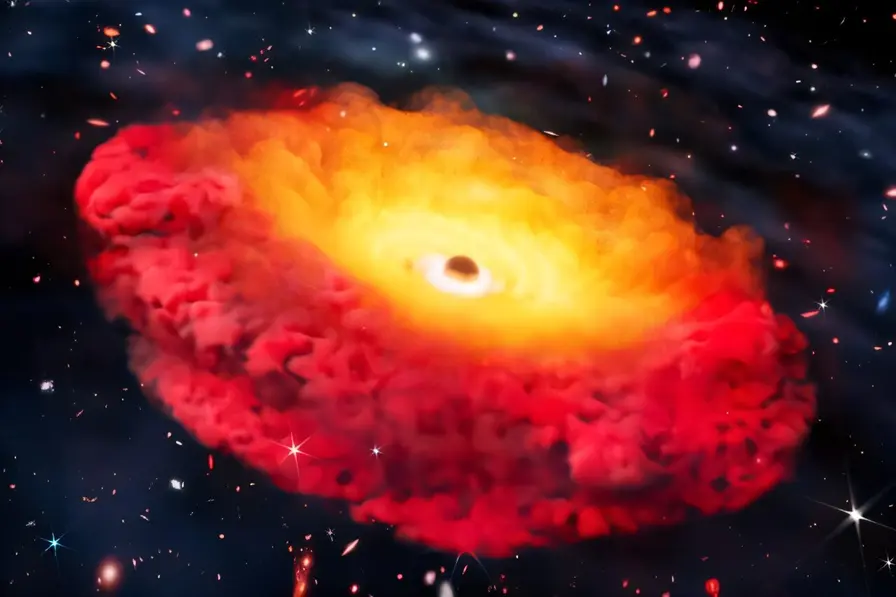
Astronomers confirm the universe's earliest black hole

Earendel may be a star cluster not a lone star

James Webb spots 300 bright early universe objects
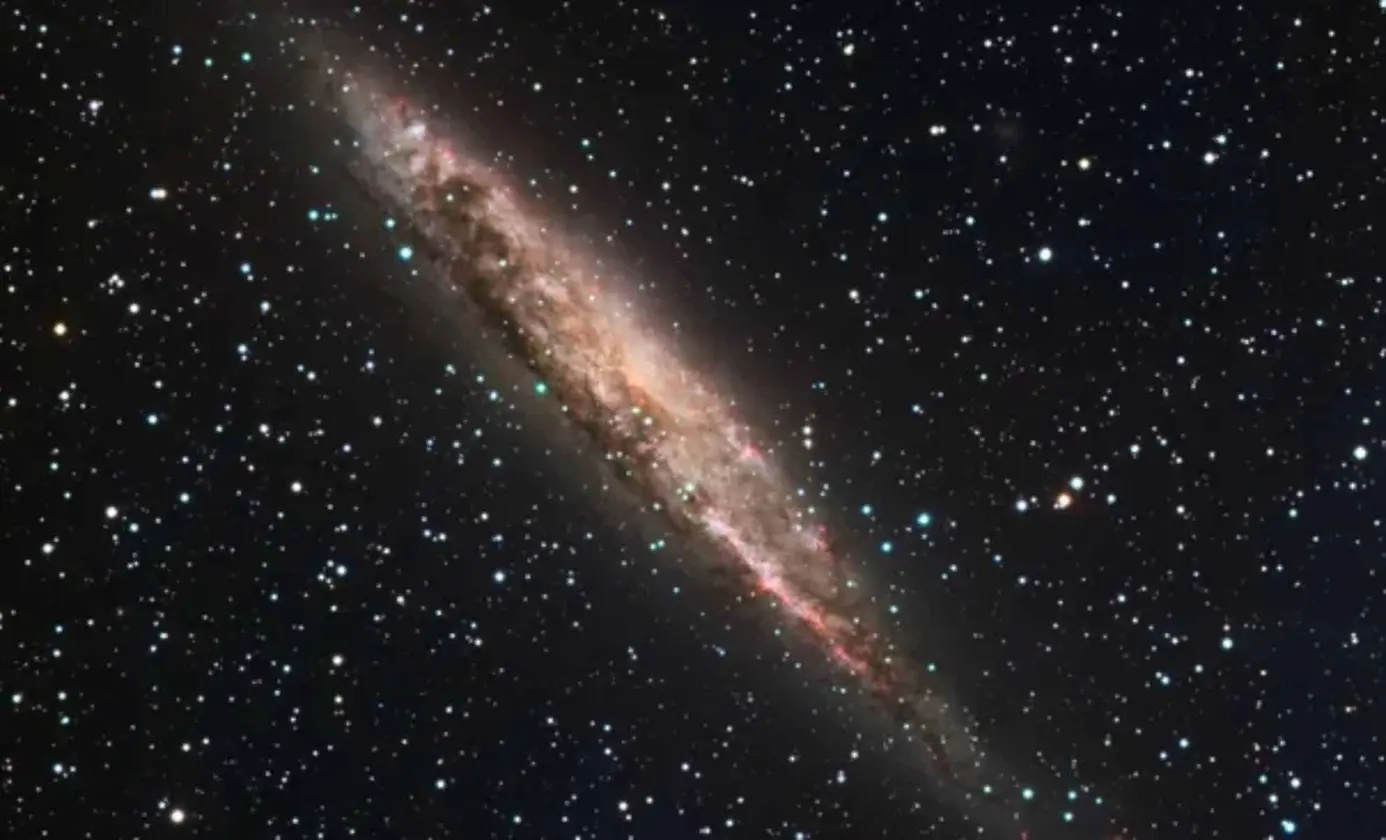
Bright Cosmic Object Defies Known Categories

Brightest fast radio burst pins down origin
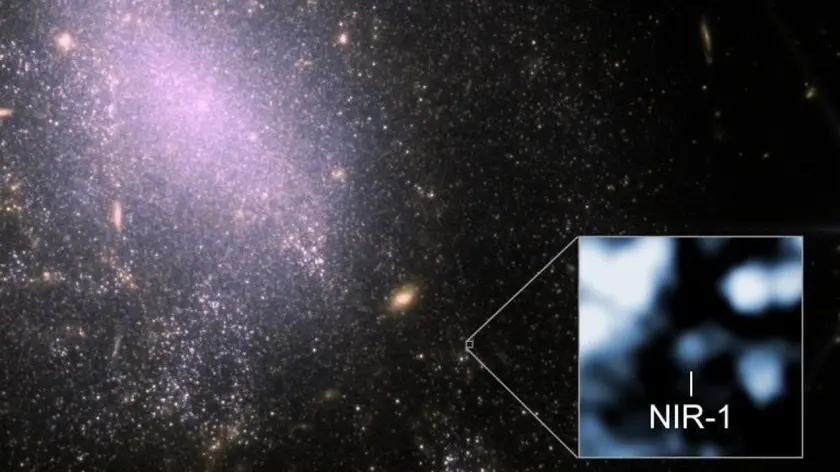
Precise FRB origin traced
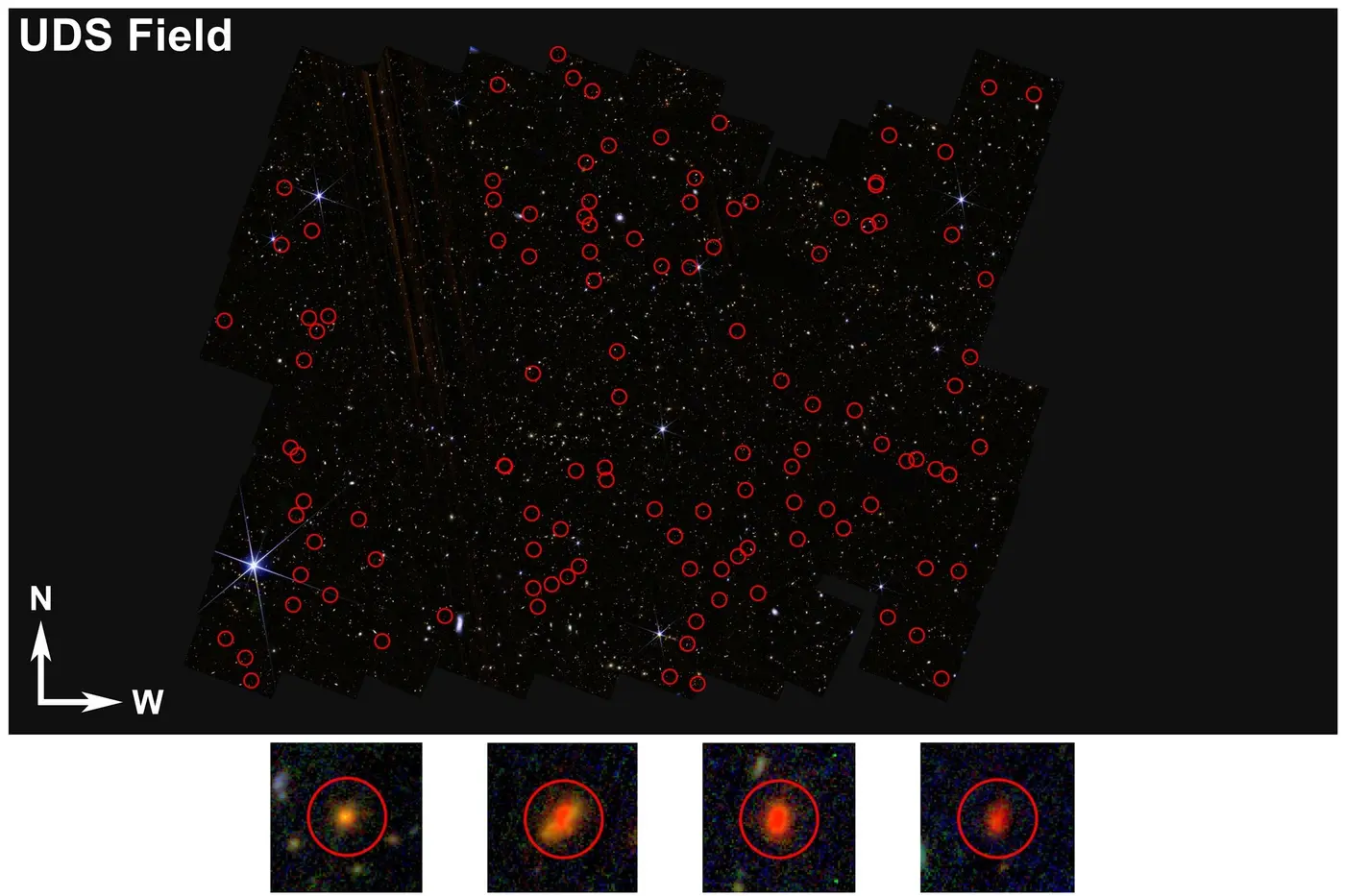
Webb finds 300 bright dropouts in deep space
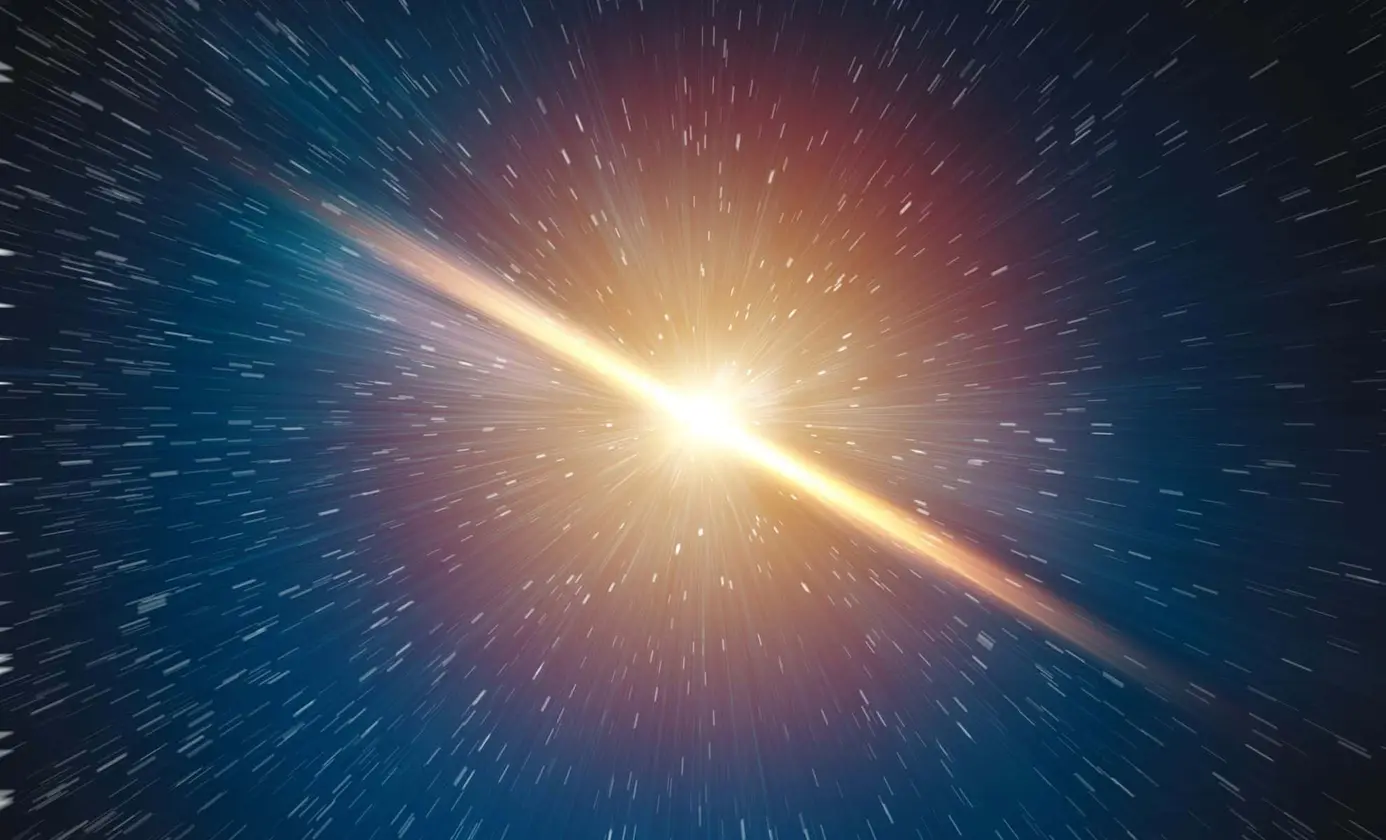
Astronomers confirm ancient galaxy supports Big Bang theory
